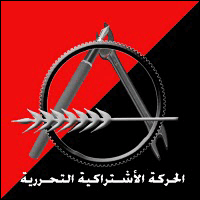The party is haunting us again
by Shawn Hattingh (ZACF)
 Karl Marx once said that history repeats itself, first as a tragedy then as a farce. A case in point is that in South Africa sections of the left are once again calling for a mass workers’ party (MWP) to be formed to contest elections – this they believe will bring us closer to revolution. History says otherwise.
Karl Marx once said that history repeats itself, first as a tragedy then as a farce. A case in point is that in South Africa sections of the left are once again calling for a mass workers’ party (MWP) to be formed to contest elections – this they believe will bring us closer to revolution. History says otherwise.
Of course the new calls for a MWP stem from the National Union of Metalworkers of South Africa (NUMSA) breaking from the African National Congress (ANC). As an outcome NUMSA is exploring the possibility of setting up a MWP to contest elections. Many Marxist and leftist influenced organisations, but also cadres within NUMSA, are therefore providing reasons why activists should be interested in such a party.
Obituary of Nigerian anarchist Sam Mbah
 Zabalaza Anarchist Communist Front is deeply saddened to hear of the death a great human being, African brother, and fellow activist – Sam Mbah. We would like to send our deepest sympathies to those who knew Sam. We hope that you are comforted by the fact that the time he did spend with us was put to its absolute fullest use.
Zabalaza Anarchist Communist Front is deeply saddened to hear of the death a great human being, African brother, and fellow activist – Sam Mbah. We would like to send our deepest sympathies to those who knew Sam. We hope that you are comforted by the fact that the time he did spend with us was put to its absolute fullest use.
It is particularly difficult for us in South Africa to hear of this news because we are likewise struggling to build a movement that, as Sam has always acknowledged, is still in its infancy and will take some time to “crystallize”. Knowing that people like Sam were out there in other parts of Africa doing what we are trying to do here was a great inspiration to us. It helped us to continue on a long and difficult path. Sam’s individual contribution to our own (and collective) project of building a strong and viable anarchist movement in Africa was massive, and his departure will be sorely felt. But we feel comforted in the fact that his legacy will be an inspiration for others who will eventually follow in his footsteps.





